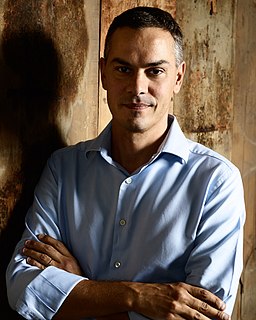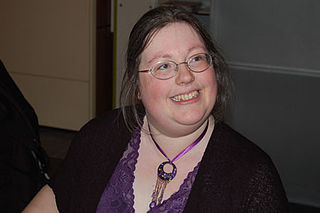A Quote by Kate Nash
Artists often have mental health issues. And their lifestyles are unstable because of all the travelling and the media commentary on their lives.
Related Quotes
One of the issues I think is very important, in many communities of color, there's a stigma about mental health. We find that the shaming that comes from acknowledging that one may have some issues that may relate to mental health, often people are not willing to go and seek additional help because of that shaming or that cultural stigma that's associated with it. And I think that we need to make this change in how people approach mental health.
One of the things we need to do is address mental health care as an integral part of primary care. People often aren't able to navigate a separate system, so you see successful models where a primary care physician is able to identify, diagnose, and concurrently help people get mental health treatment who have mental health issues.
It can be seen as 'weak' to complain about health issues or worry about your health. But with younger guys, I think it's just a case of it being a secondary thought. We live pretty busy lifestyles these days. People have got work and social lives, and they party and spend a lot of time doing other things, and health just takes a backseat in a lot of cases. That's just the way a lot of people seem to live their lives.
We need to start identifying the triggers that aggravate mental health issues in our society - bullying, social media negativity and anxiety, gender based violence, substance abuse, stigma around issues such as maternal issues, etc., and we need to speak up about these more and get to the source of the problems.
Mental strength is not the same as mental health. Just like someone with diabetes could still be physically strong, someone with depression can still be mentally strong. Many people with mental health issues are incredibly mentally strong. Anyone can make choices to build mental strength, regardless of whether they have a mental health issue.
Where LGBT and mental health issues collide is over stigma. And stigma is society's problem not the problem of the LGBT or mental health community. What we have to deal with is the ignorance, fear and prejudice that blight the lives of those who have nothing wrong with them in any moral or transgressive sense. It is society that is ill.
You witness the artists acting as witnesses, but they provide a point of view that's less monolithic. It's less official in a certain way. Many artists are speaking in the first person singular, as a reaction to dubbed-over media commentary. The thought is: "Enough with how we're represented by the media. Let me tell the story."
Let me say, it's - what a commentary it is on American media that you have to go to Russian television in order to get covered as a candidate in this election. It's pretty outrageous. And our media could solve that in a heartbeat if they actually opened it up, you know, but they don't. So I think that's more commentary on the crisis in our media.
The impact of the earthquake on mental health was huge and unimaginably deep in people's lives. Some lost all benchmarks and references because of their great loss, we still have people coming to clinics with mental health problems related to the earthquake. They talk about the earthquake, about being under the rubble.
Intellectual respectability required mental health, and it was becoming evident to me by then that "mental health" consisted of trusting everyone about everything as much as possible - and, for good measure, poking fun at anyone who didn't. Especially to be trusted were the mass media, whose owners and personnel were not to be regarded as minions of the Establishment because, as they themselves used to attest with confidence, there was no Establishment in the United States of America. Only foreigners and paranoids believed (otherwise).




































